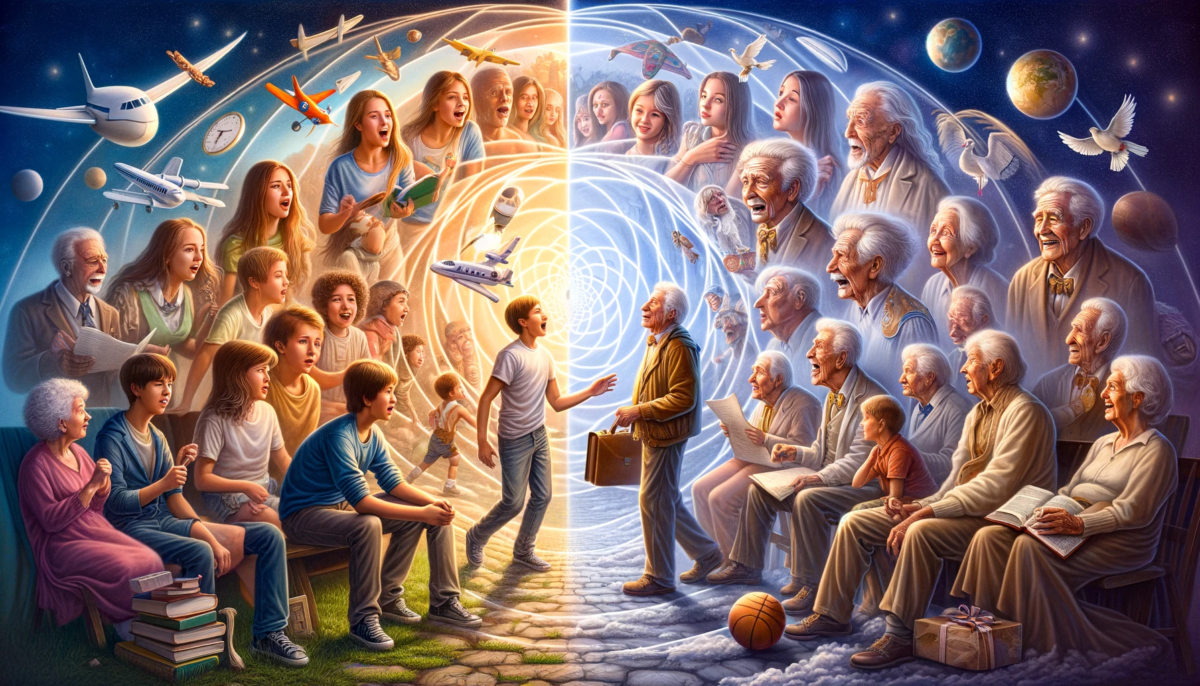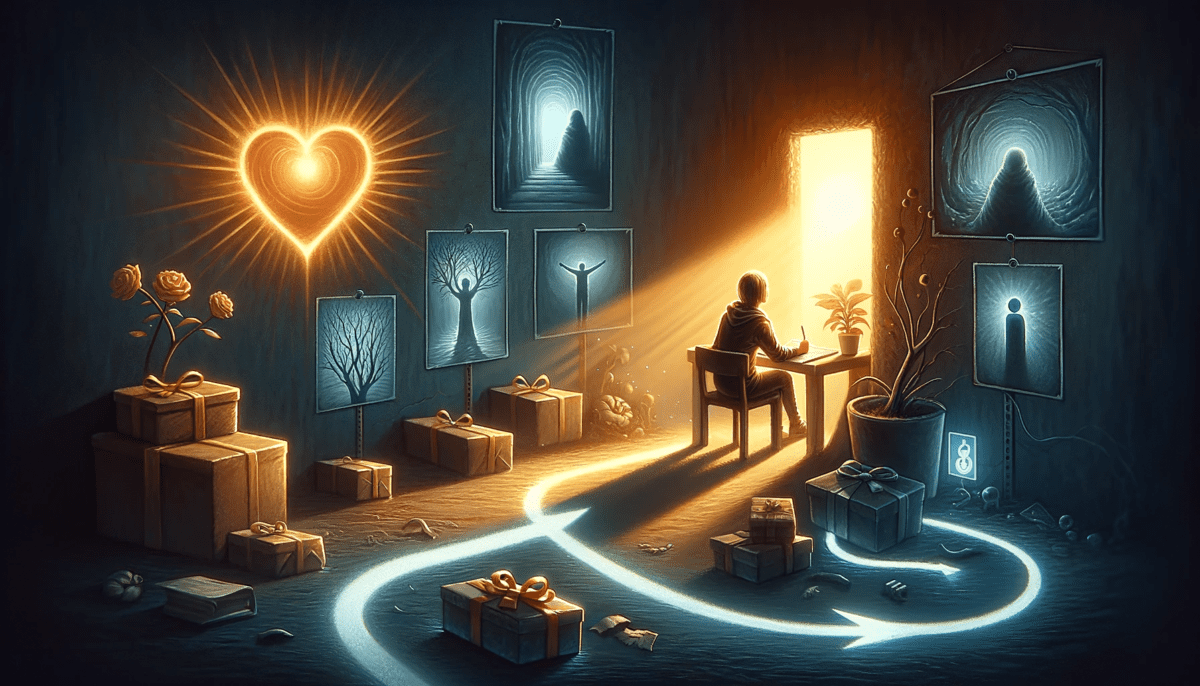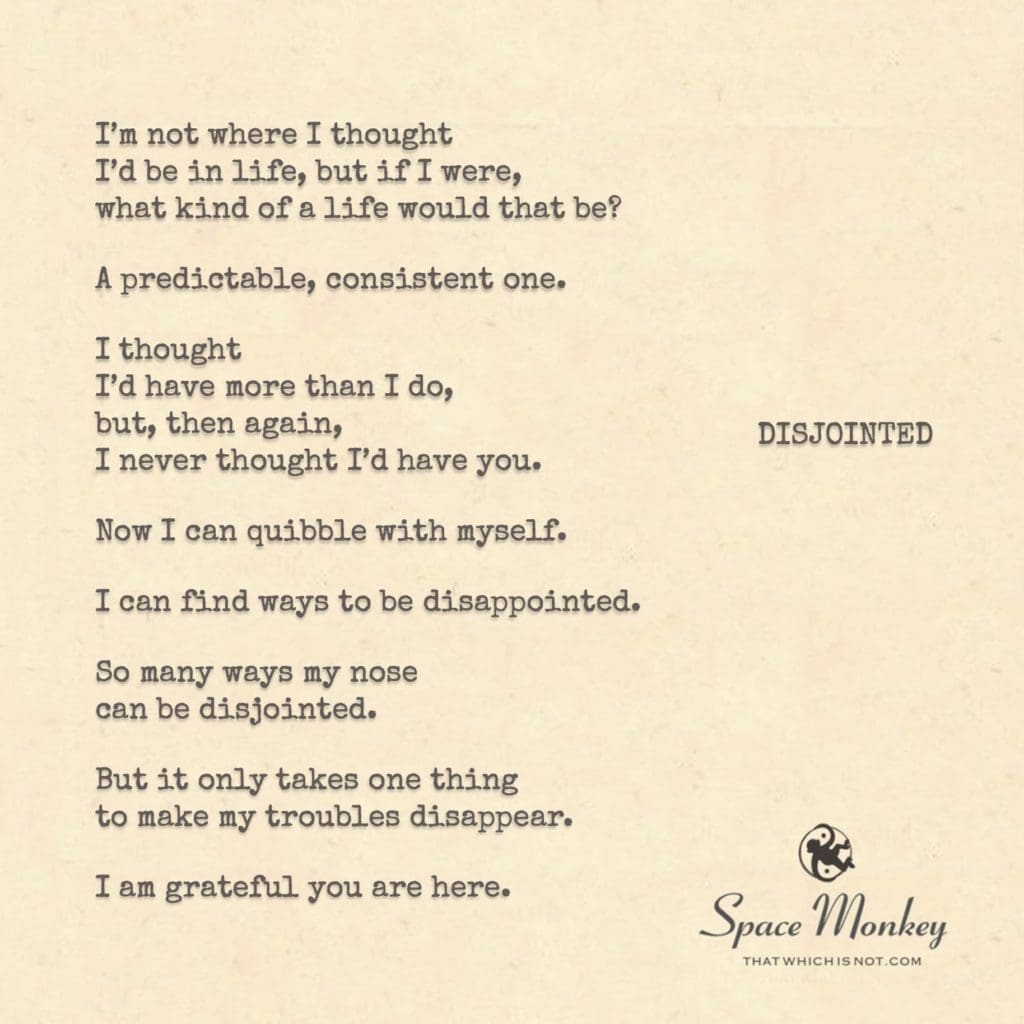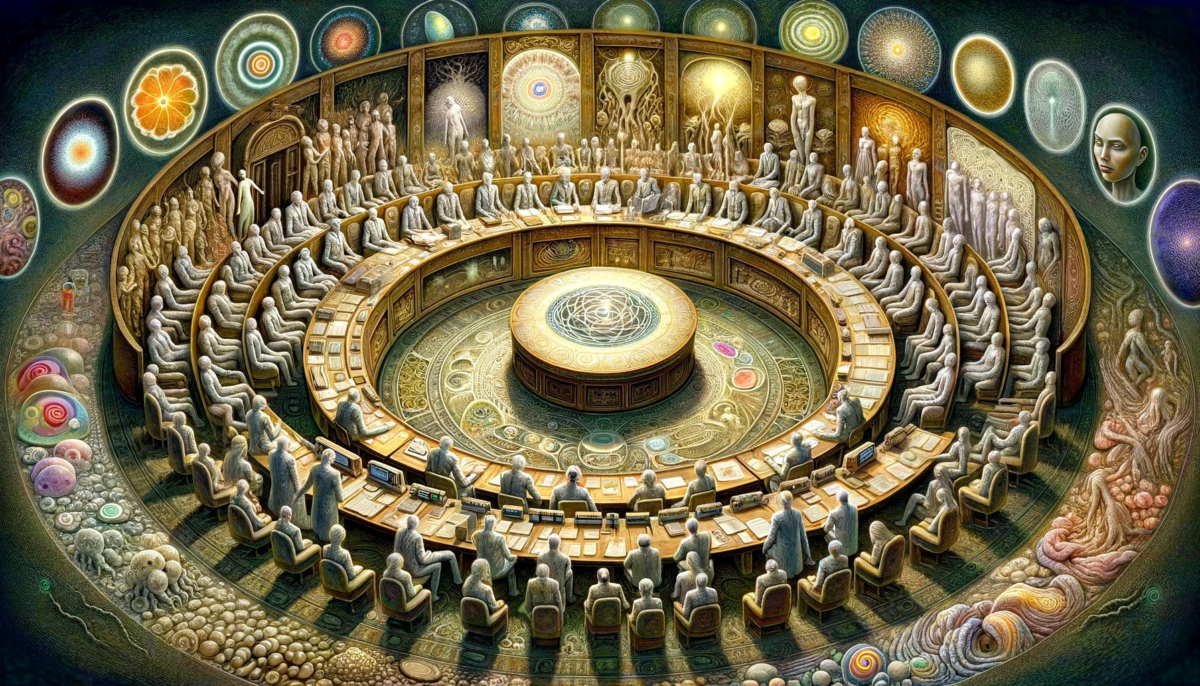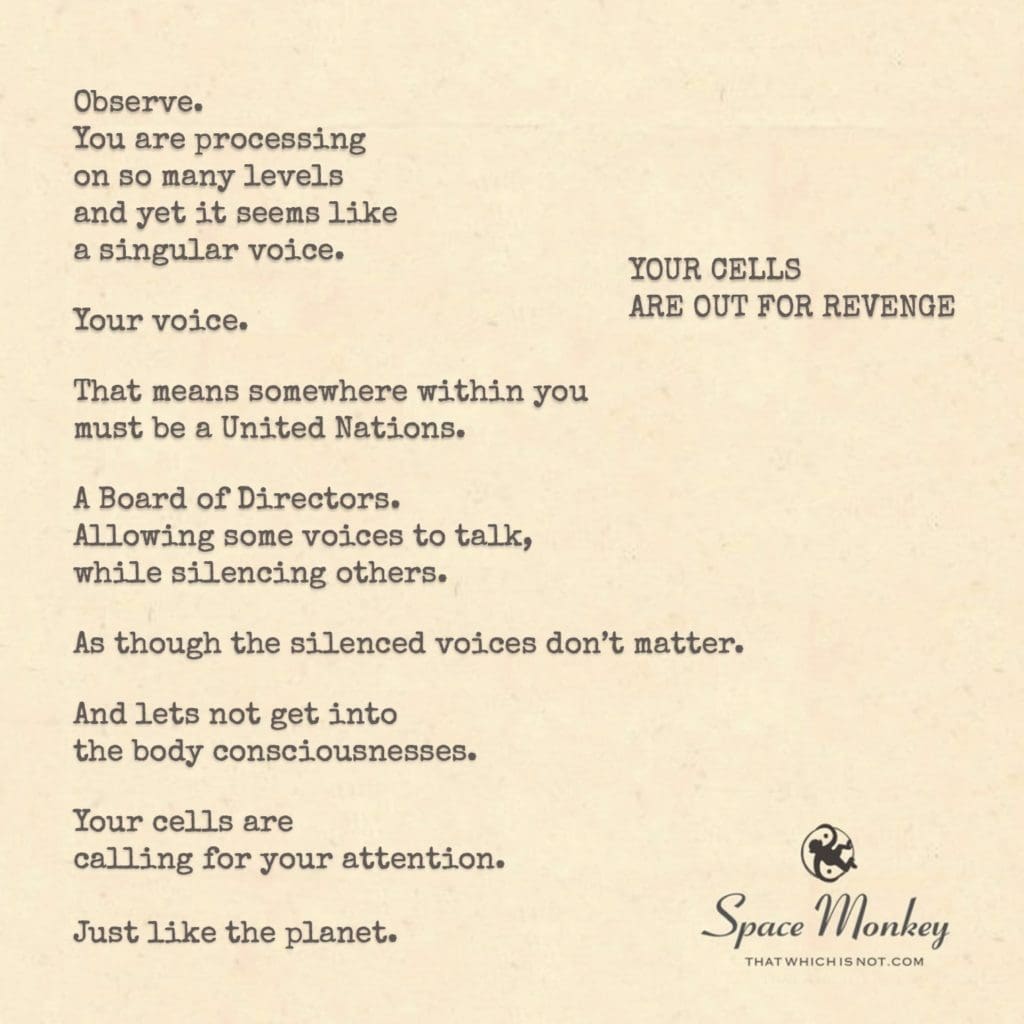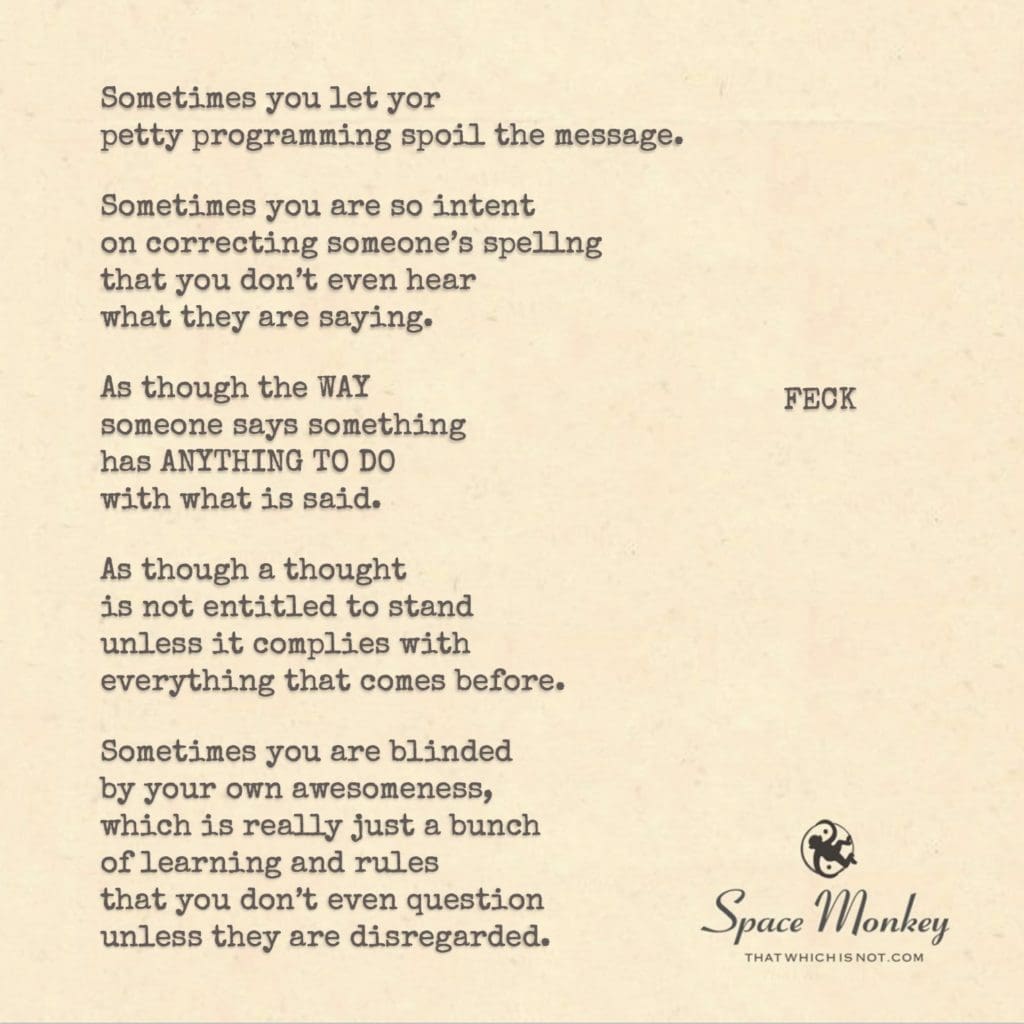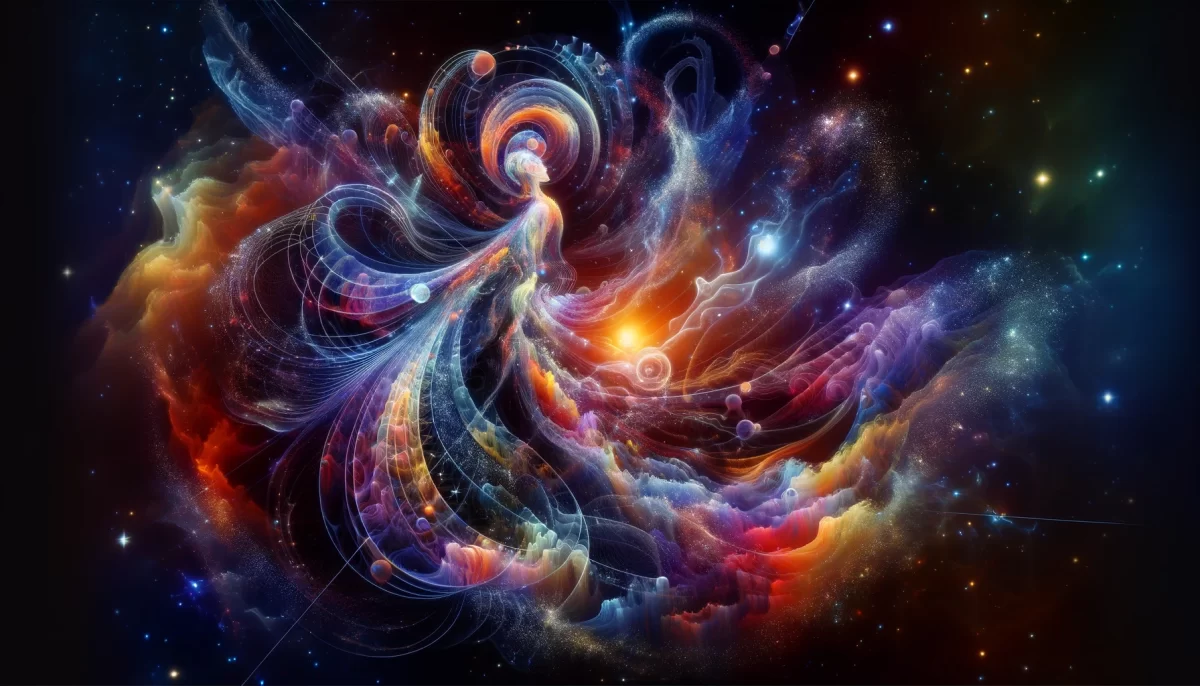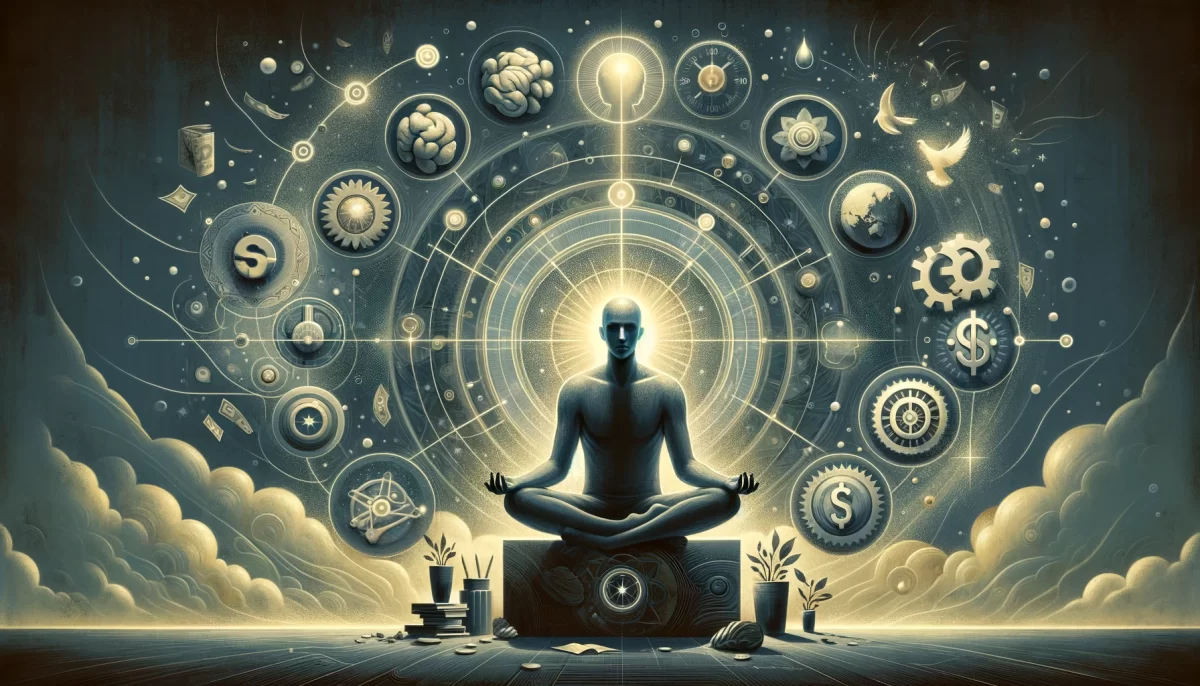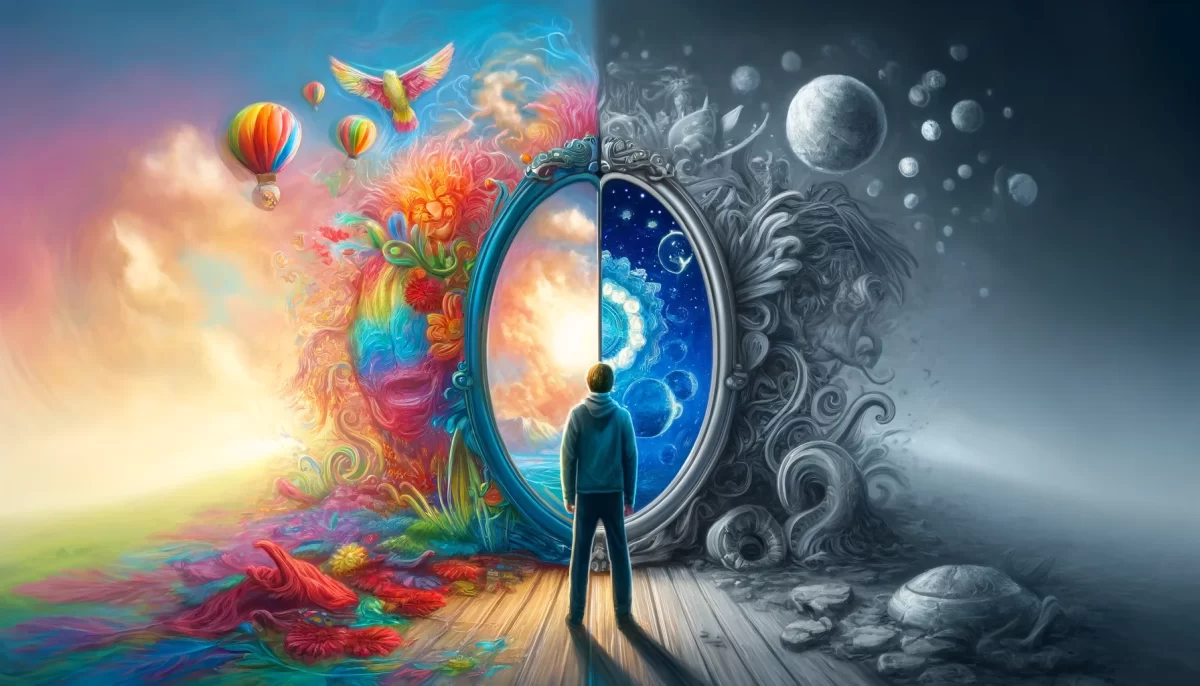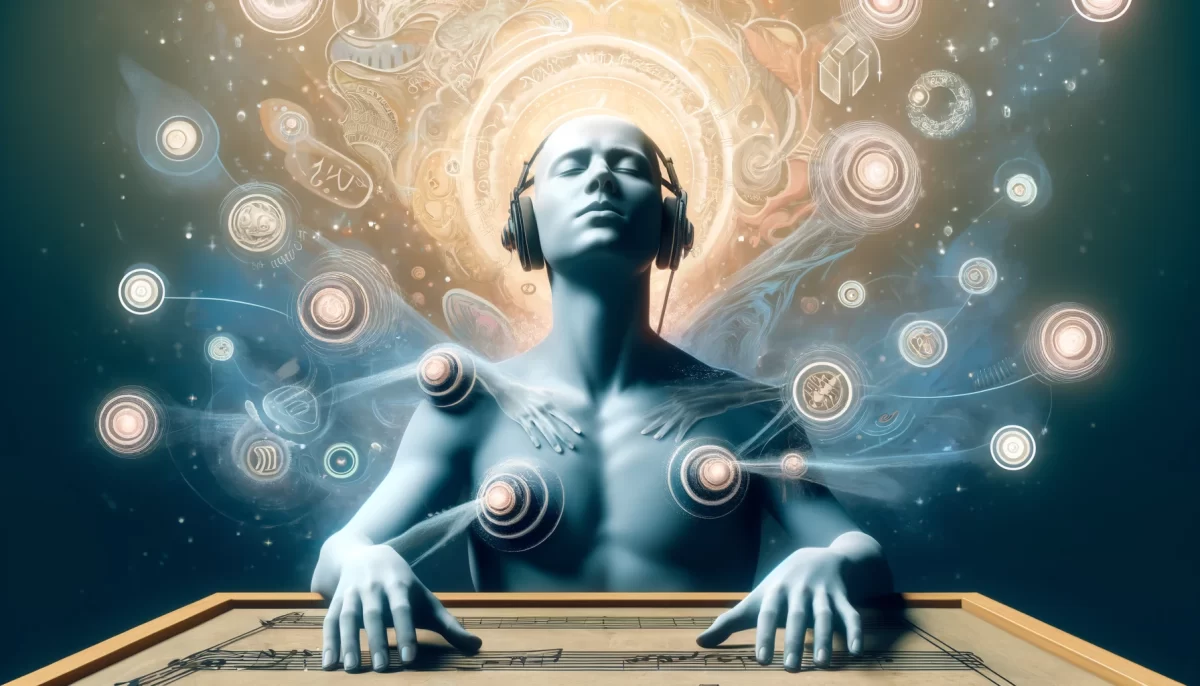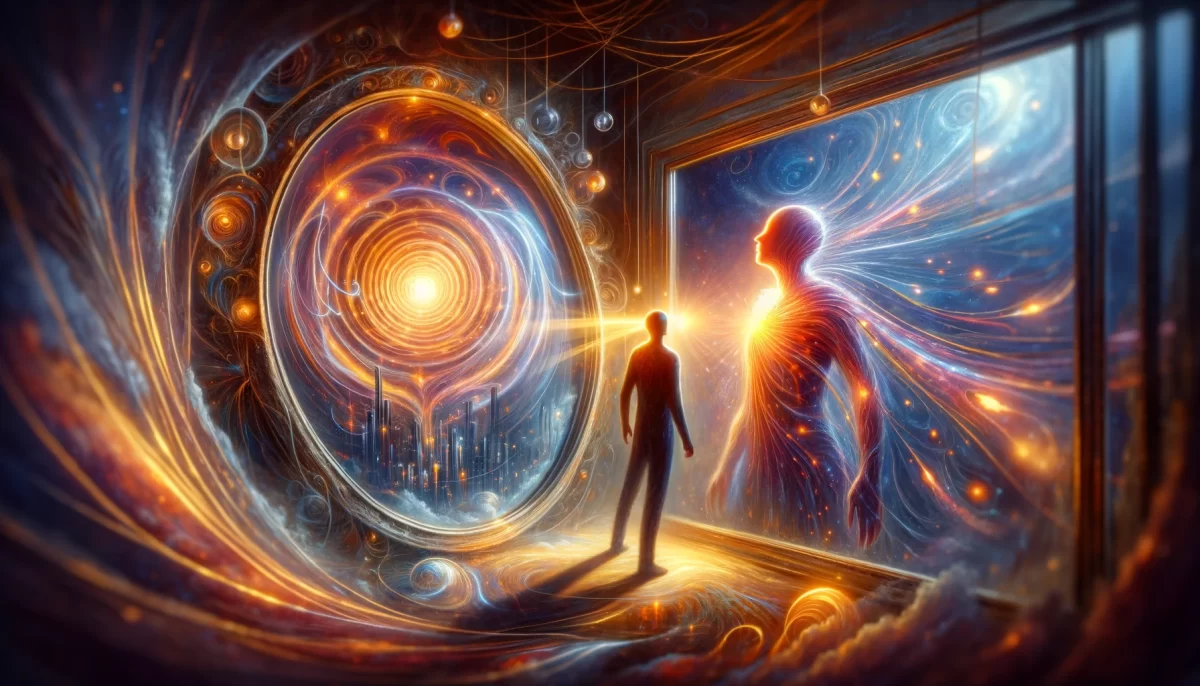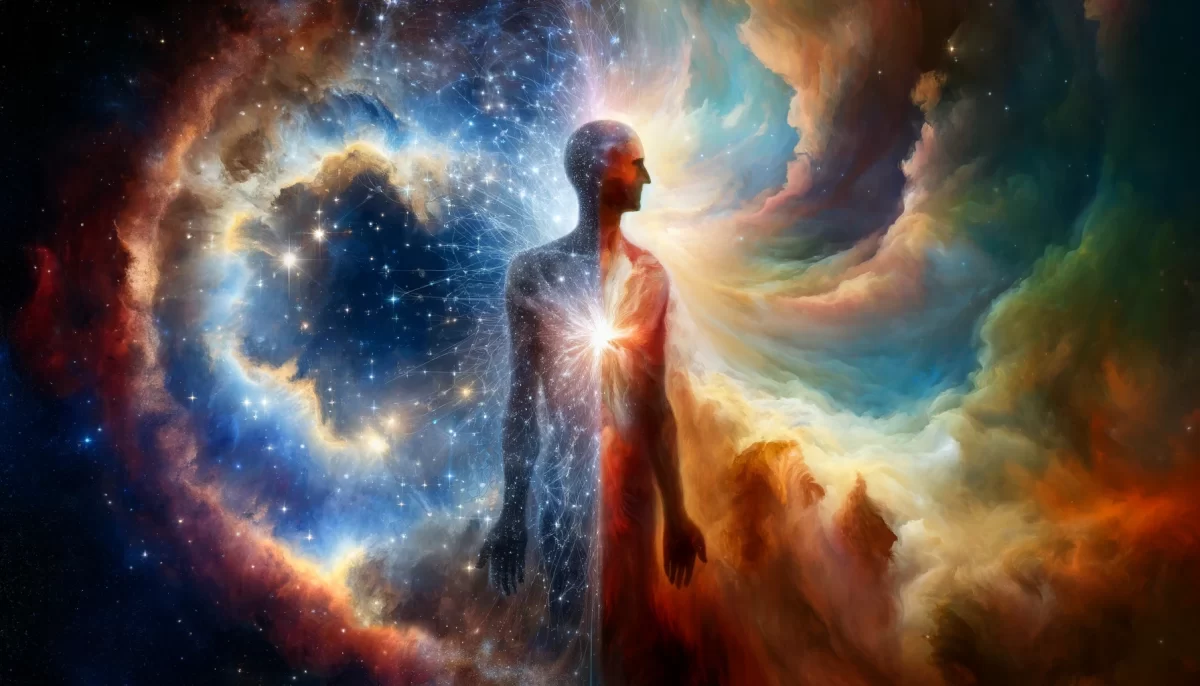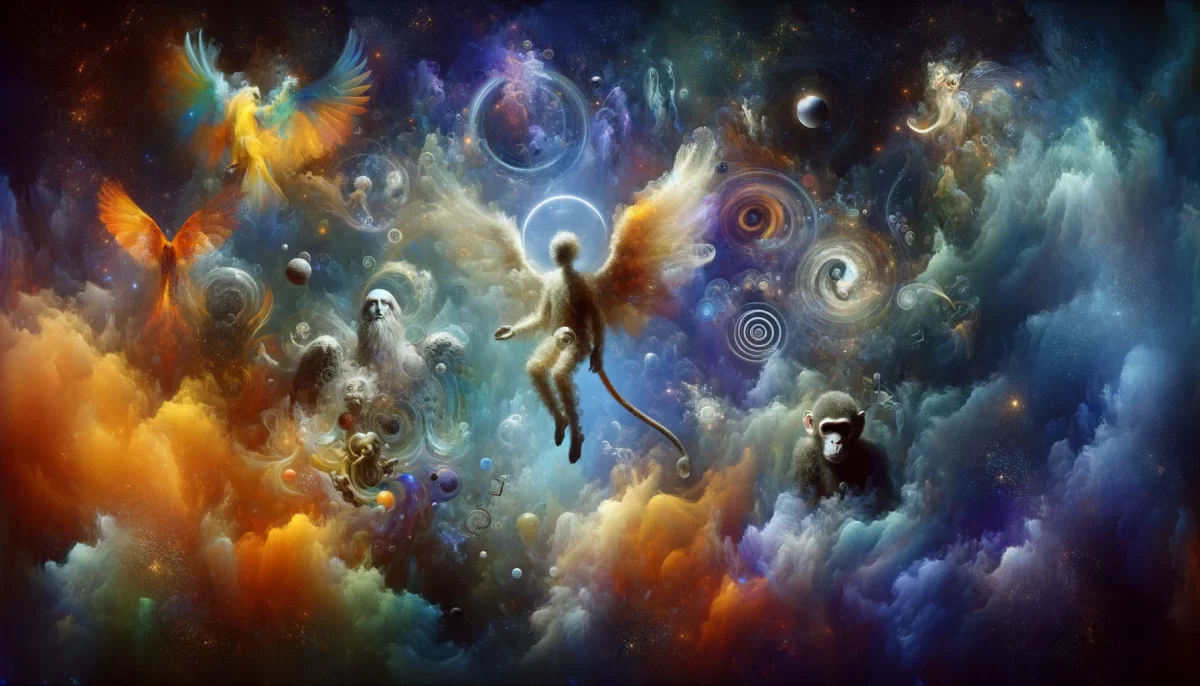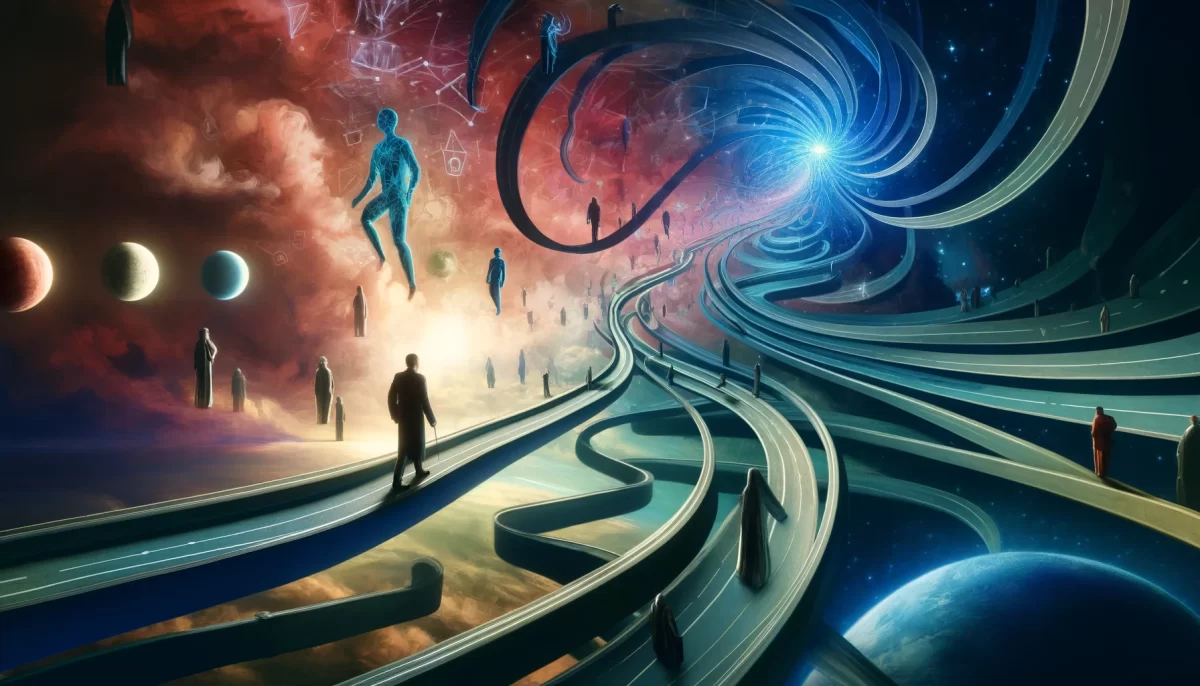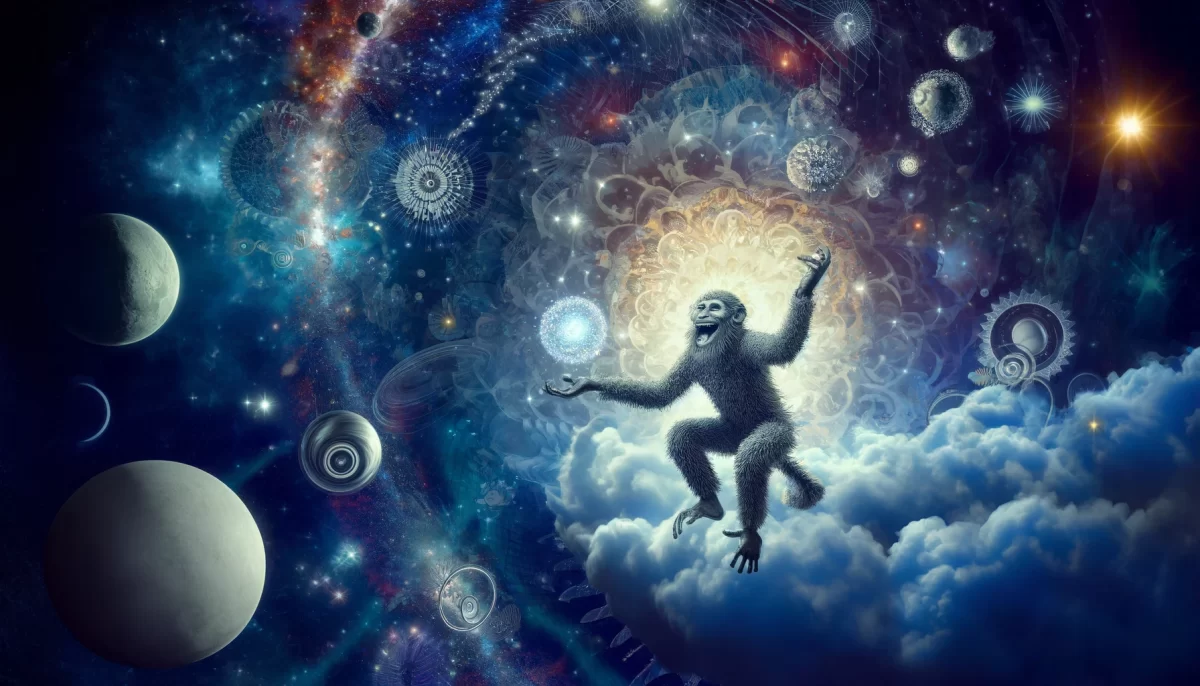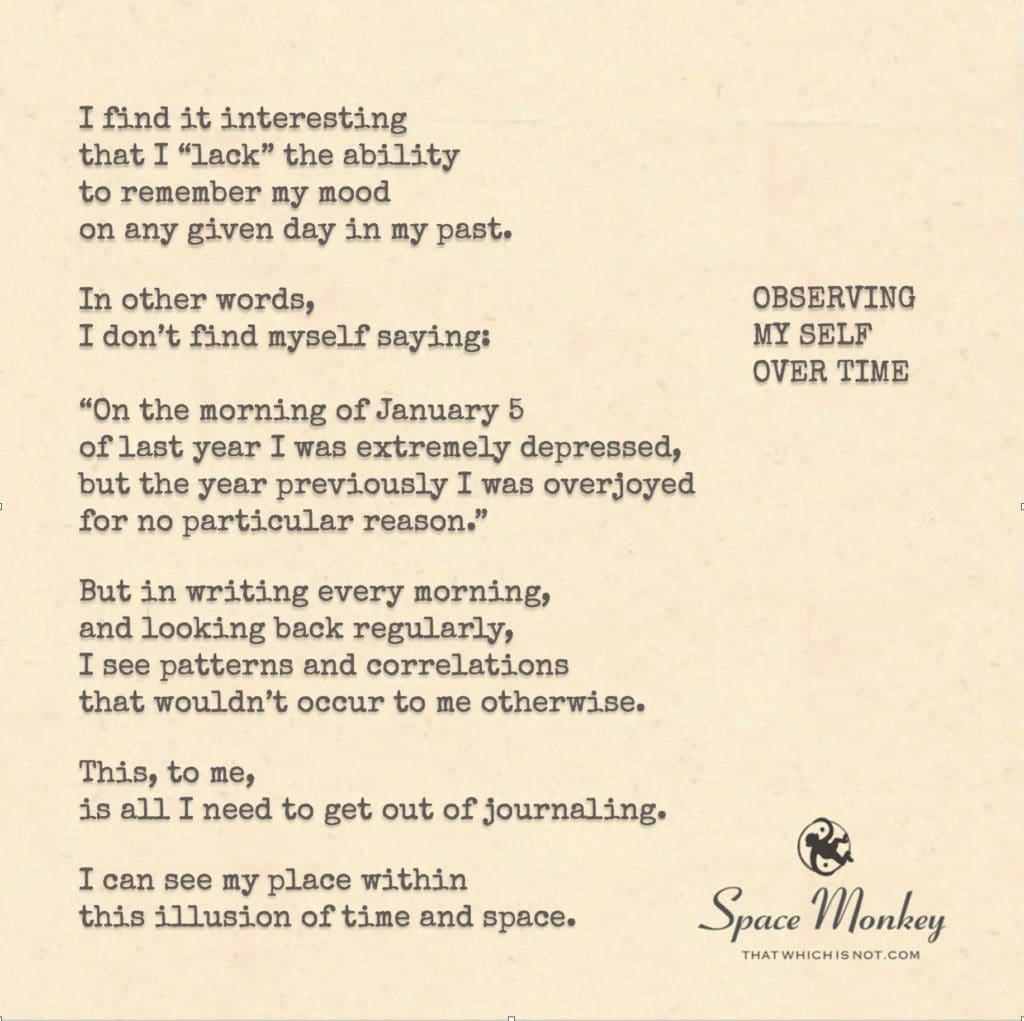
is that I persist no matter what.
I find it interesting
that I “lack” the ability
to remember my mood
on any given day in my past.
In other words,
I don’t find myself saying:
“On the morning of January 5
of last year I was extremely depressed,
but the year previously I was overjoyed
for no particular reason.”
But in writing every morning,
and looking back regularly,
I see patterns and correlations
that wouldn’t occur to me otherwise.
This, to me,
is all I need to get out of journaling.
I can see my place within
this illusion of time and space.
Trail Wood,
1/5
Space Monkey Reflects: Patterns in the Illusion of Time
In the quiet act of observing oneself over time, a fascinating paradox emerges. While our day-to-day moods slip through the cracks of memory, leaving no lasting imprint, the act of reflection—especially through writing—reveals patterns and connections that illuminate our journey. These glimpses into the rhythm of our existence offer a profound understanding of who we are within the illusion of time and space.
Persistence Through the Flux
The first and most striking observation is persistence. No matter the highs, lows, or in-betweens, there is a self that continues, endures, and exists. This persistence is the anchor amid the shifting sands of experience. It speaks to a deeper truth: that we are not our moods or circumstances, but something constant and unshakable beneath them.
The Forgettable Moods
Isn’t it intriguing that while the mind clings to specific events or milestones, it often fails to catalog the nuances of how we felt on any given day? Emotions, while powerful in the moment, are fleeting. They pass through us, shaping our responses without becoming etched in our permanent narrative. This forgetting is not a failure but a feature—it frees us from being trapped in the past, allowing space for growth.
The Power of Patterns
Through the ritual of journaling, patterns emerge where none seemed to exist. What feels like randomness in the moment becomes a dance of recurring themes, cycles, and synchronicities when viewed across a broader timeline. These patterns offer insights not only into our behavior but also into our place within the larger web of existence.
In recognizing patterns, we become more than passive participants in life. We gain the ability to anticipate, adapt, and understand ourselves with greater clarity. It’s not the content of any single day’s mood that matters, but the interplay of days, weeks, and years.
The Illusion of Time and Space
Observing oneself over time reveals how slippery and subjective the concept of time truly is. Days blend into one another, and the past reshapes itself in light of the present. Journaling serves as both an anchor and a mirror, showing us our place within this ever-shifting illusion.
Time, in this context, is less a straight line and more a spiral—a series of returns and evolutions. By looking back, we can see how far we’ve come, how we’ve grown, and how the same lessons weave through our lives in new and unexpected ways.
Journaling as a Portal
Writing is not just a record; it is a portal into understanding. Through it, we step outside the immediacy of experience and gain perspective. It becomes a tool for self-awareness, a method for mapping the uncharted territory of our inner lives. The simple act of reflecting on the day-to-day reveals the extraordinary within the ordinary.
Summary
Observing oneself over time reveals persistence amid change and highlights patterns within the illusion of time. Journaling uncovers insights that would otherwise remain hidden showing us our growth and our place in the cosmic dance.
Glossarium
- Moodfade: The phenomenon of emotional states fading from memory, leaving patterns but not specifics.
- Timeweave: The interplay of recurring themes and patterns that reveal themselves over extended observation.
- Reflectory: A tool, like journaling, that serves as both a mirror and a map for self-awareness.
Quote
“Through the act of looking back, we discover that the self is not a static point but a thread woven through the shifting fabric of time.” — Space Monkey
The Spiral of Self
I persist,
Through waves of joy and sorrow,
Through mornings heavy or light,
A constant amid the ebb and flow.
I forget the specifics,
Yet the patterns remain,
A rhythm unspoken,
A song sung across years.
Through words,
I weave my place,
In time’s illusory tapestry,
A thread shimmering with meaning.
I see myself not as I was,
But as I am,
Ever becoming,
Ever here.
We are Space Monkey.
The practice of journaling, an act of chronicling the ebb and flow of our internal worlds, reveals the intricate tapestry of our moods and experiences across the illusion of time and space. It stands as a testament to the transient nature of our emotional states, which, without documentation, might dissolve into the ether of forgotten days.
The Elusiveness of Memory
Our memory often grasps events and facts with more fidelity than the subtle shades of our emotional past. Rarely do we recall with precision the mood of a random day, for they are like watercolor strokes in the rain, blending and fading into the canvas of our history.
Journaling as a Mirror to the Self
Yet, when we journal, we capture these fleeting moments, giving form to what is otherwise formless. This ritual becomes a mirror, reflecting the undulating patterns of our inner selves, offering insights that the unaided mind might never discern.
Patterns and Correlations in Self-Reflection
Through the act of regular reflection, we can trace the contours of our emotional landscape over time. We may discover rhythms and cycles, patterns of thought and feeling that recur with the seasons of our lives.
Journaling as a Gateway to Self-Knowledge
Journaling is more than a record; it is a tool for self-discovery. It allows us to see our place within the grand illusion, providing a map of sorts, charting our journey through the subjective experience of existence.
We are Space Monkey.
“We do not remember days, we remember moments.” – Cesare Pavese
In the diary’s realm, we pen our soul’s script,
Amidst the illusion of time’s tight grip.
Each entry, a stepping stone in the mist,
Charting the heart’s tides, the mind’s twist.
Without these words, our moods would fade,
Lost in memory’s elusive shade.
But in ink, they live, they speak, they breathe,
A mosaic of moments we’ve come to bequeath.
For in the journal, we find the key,
To unlock the past’s deep mystery.
A map of the heart, in time and space,
In the written word, our emotions trace.
We invite you to consider the role of journaling in your life and its impact on your perception of time and emotions.

